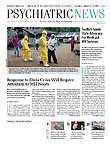Blame the biological clock.
When teenagers stay up later and sleep later on weekends than on school days, their schedules often are comparable to living in Rhode Island five days a week and in Hawaii two days a week, according to Mary Carskadon, Ph.D.
In research begun in the 1970s at Stanford University, Carskadon documented a change in the timing of the biological clock at puberty, marked by a delay in nocturnal melatonin secretion. Teenagers’ internal clocks prompt them to stay awake approximately two hours later than prepubertal children. She also found the homeostatic sleep drive changes in adolescence, making it easier for teenagers to stay awake for more hours than younger children can manage.
Teenagers still need as much sleep as younger children do, about 8.5 to 9.5 hours for optimal alertness, said Carskadon, a professor of psychiatry and human behavior at the Alpert Medical School of Brown University and director of chronobiology and sleep research at E.P. Bradley Hospital in Providence, R.I. Most adolescents don’t get enough sleep, she asserted, because school days make them wake up too early.
She and others discussed implications of recent sleep research for teen mental and physical health at the annual meeting of the American Academy of Sleep Medicine and Sleep Research Society in Minneapolis in June.
Sleep enhances both the ability to acquire information and to remember it later, Jessica Payne, Ph.D., reported at the symposium. Adequate sleep also helps adolescents regulate emotions and better manage social relationships, stress, and mood, said Payne, who is the Nancy O’Neill Collegiate Chair in Psychology at the University of Notre Dame. Lack of sleep, she added, hinders the ability to solve problems, develop insight, and make creative connections.
When school starts later, academic performance and other health indicators improve, said Kyla Wahlstrom, Ph.D., director of the University of Minnesota’s Center for Applied Research and Educational Improvement (CAREI).
Wahlstrom led CAREI’s three-year study of about 9,500 students in grades 6 to 12 in eight public schools in Wyoming, Minnesota, and Colorado following start-time delays. In schools that started at 8:35 a.m., her group found, about 60 percent of students slept eight hours or longer on school nights. In schools that began at 7:30 a.m., only 34 percent of students got that much sleep.
Grades rose in first-period classes in the core subjects of English, math, science, and social studies. State and national standardized achievement test scores also rose, the CAREI team reported earlier this year. “We found a proportional benefit for a proportional delay in start time,” Wahlstrom said. The research was funded by the Centers for Disease Control and Prevention (CDC).
Worries that students will stay up later when schools delay start times are unfounded, Wahlstrom said. Students maintain their previous bedtimes and get more sleep.
An earlier CDC study, using data from the 2007 Youth Risk Behavior Survey, found students who slept less than eight hours a night on average were more likely than those who slept longer to report that they drink, smoke cigarettes, use marijuana, are sexually active, and had at least one physical fight in the preceding year.
Driving safety improves when schools start later, said Barbara Phillips, M.D., M.S.P.H., a professor of pulmonary, critical care, and sleep medicine at the University of Kentucky College of Medicine. She and colleagues surveyed about 10,000 students in grades 6 to 12 before and after their schools delayed start times by one hour. In the two years after the delay, auto crash rates of 17- and 18 year-old drivers fell 17 percent. After one high school in the CAREI study shifted its start time from 7:35 a.m. to 8:55 a.m., car crashes by students aged 16 to 18 fell 70 percent. Insufficient and inconsistent sleep has many adverse consequences for health, noted Dean Beebe, Ph.D., director of the neuropsychology program at Cincinnati Children’s. It has been linked to overeating and obesity, poorer athletic skill and increased sports injuries, and poorer immune function, he said. Students at schools with early start times visit the school nurse more often than those attending later-starting schools.
Despite such evidence, school systems resist change, Kenneth Dragseth, Ph.D., said. When he was superintendent of schools in the 1990s in Edina, Minn., a Minneapolis suburb, he found the Minnesota Medical Society’s endorsement of later start times compelling. In fall 1996, he elected to start classes at the 1,300-student Edina high school at 8:30 a.m., 65 minutes later than classes had started the previous year.
Teachers and parents initially expressed skepticism. Within a few days of the later start time, however, teachers reported students were more engaged. Parents reported, with amazement, he said, that their previously taciturn children were more talkative. The coffee-cup index offered an early objective indicator of increased student alertness. School custodians reported finding far fewer cups in school trash. ■
The University of Minnesota’s CAREI program has posted teen sleep resources that can be accessed
here.

